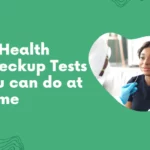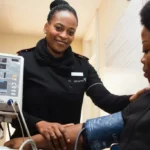10 Common PCOS Myths: Debunking Harmful Misconceptions About PCOS
Reviewed by Dr. Stephanie Egboh, September 2024
Polycystic Ovary Syndrome (PCOS) is a complex hormonal disorder that affects millions of women worldwide. Despite its prevalence, there are many myths and misconceptions surrounding PCOS that can lead to confusion and misinformation. In this article, we’ll debunk ten common myths about PCOS to help you understand the condition better and make informed health decisions.
- Myth: Only Overweight Women Have PCOS
Fact: PCOS can affect women of all shapes and sizes. While weight gain and difficulty losing weight are common symptoms due to insulin resistance, women who are lean can also have PCOS. Weight is not a determinant of the condition, and its management should be personalized.
- Myth: PCOS Always Causes Ovarian Cysts
Fact: Despite the name, not all women with PCOS have ovarian cysts. The term “polycystic” refers to the appearance of the ovaries on an ultrasound, which may show multiple small follicles (not actual cysts). Diagnosis is based on a combination of symptoms, hormone levels, and possibly imaging, but the presence of cysts is not mandatory.
- Myth: You Can’t Get Pregnant If You Have PCOS
Fact: While PCOS can make it more challenging to conceive due to irregular ovulation, it does not mean that pregnancy is impossible. Many women with PCOS have successful pregnancies with the help of lifestyle changes, medication, or fertility treatments.
- Myth: PCOS Only Affects Reproductive Health
Fact: PCOS impacts more than just reproductive health. It can also affect metabolic and mental health, increasing the risk of conditions like type 2 diabetes, heart disease, sleep apnea, anxiety, and depression. Comprehensive management should address all aspects of the condition.
- Myth: Birth Control Pills Cure PCOS
Fact: Birth control pills are commonly used to manage PCOS symptoms like irregular periods and acne, but they do not cure the condition. They are a management tool, helping regulate menstrual cycles and reduce androgen levels, but the underlying hormonal imbalance remains.
- Myth: PCOS Symptoms Are the Same for Everyone
Fact: PCOS manifests differently in each woman. Symptoms vary widely and can include irregular periods, excess hair growth, acne, weight gain, or thinning hair. Some may have all symptoms, while others have only a few. This variability is why personalized care is crucial.
- Myth: Losing Weight Will Cure PCOS
Fact: While weight loss can help alleviate some symptoms and improve overall health, it does not cure PCOS. Weight management is a beneficial part of treatment for many women with PCOS, especially those who are overweight, but it is not a standalone solution.
- Myth: PCOS Is Rare
Fact: PCOS is one of the most common hormonal disorders among women of reproductive age, affecting about 1 in 10 women. Despite its prevalence, awareness and understanding of PCOS are still lacking, making it crucial to dispel myths and spread accurate information.
- Myth: PCOS Symptoms Will Go Away After Menopause
Fact: While some symptoms, like irregular periods, may naturally resolve after menopause, PCOS can continue to affect metabolic health long after reproductive years. Issues like insulin resistance, increased risk of diabetes, and cardiovascular concerns persist, requiring ongoing attention.
- Myth: There’s Nothing You Can Do to Manage PCOS
Fact: Although there is no cure for PCOS, there are many ways to manage and reduce symptoms effectively. A combination of lifestyle changes, medication, and regular monitoring can significantly improve quality of life. Management plans should be tailored to the individual’s symptoms and health goals.
Take Control of Your PCOS Journey
PCOS is a manageable condition, but navigating it requires awareness and the right information. Don’t let myths and misconceptions deter you from seeking the help and care you need. If you have concerns about PCOS or are experiencing symptoms, consider booking a test on our website or schedule a doctor’s consultation for personalized guidance. You can also visit our lab at 35A Furo Ezimora Street, Lekki Phase 1, Lagos for support.




